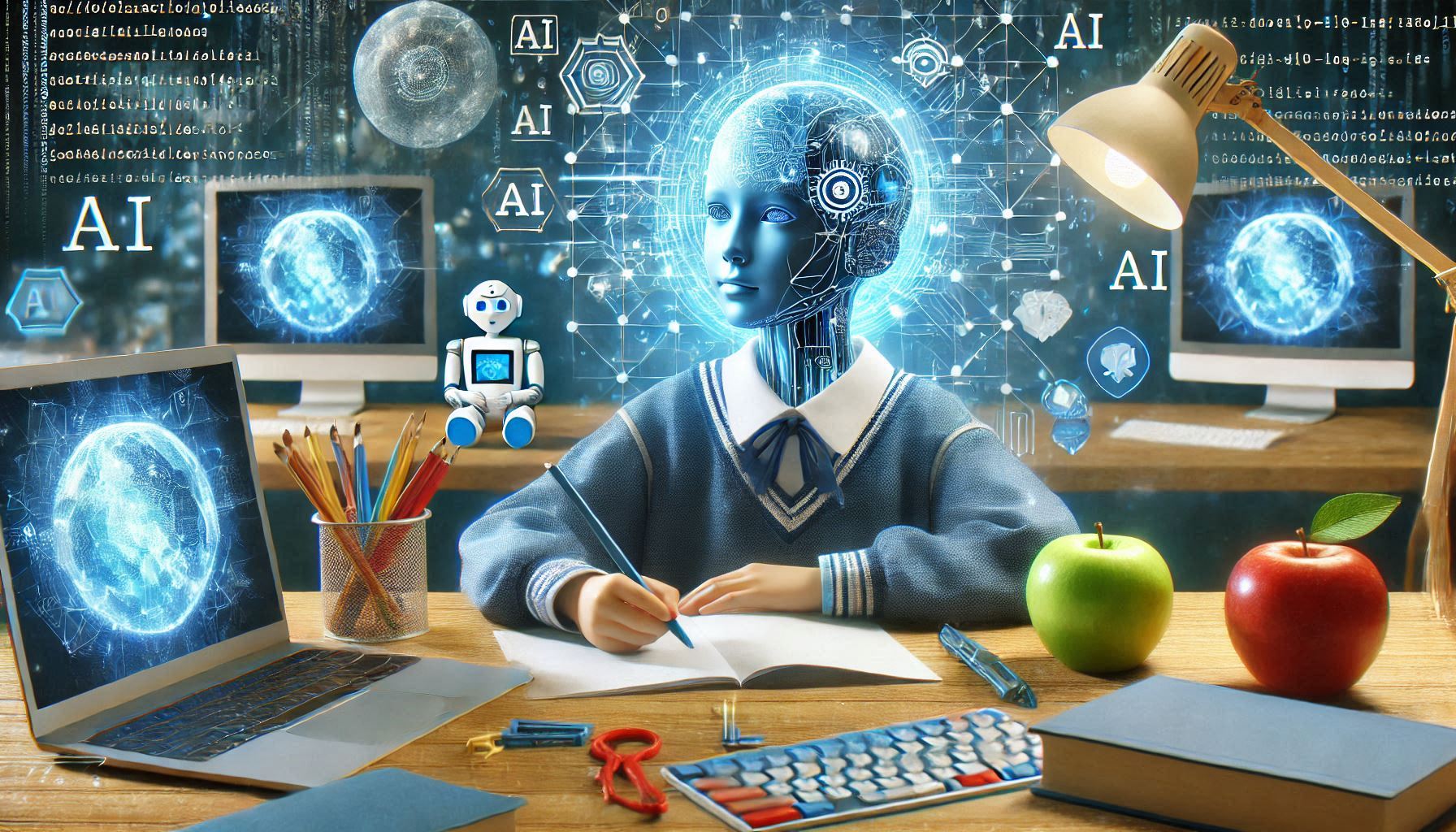Artificial Intelligence (AI) is no longer just a futuristic concept; it is a transformative force that is revolutionizing industries across the globe. One of the fields where AI is making a significant impact is computer education. As technology continues to evolve, AI is being integrated into various educational tools and platforms, creating a smarter, more personalized learning environment for students and educators alike.
In this article, we will explore how AI is transforming computer education by enhancing learning experiences, improving accessibility, and providing new career opportunities for aspiring professionals.
1. Personalized Learning Experiences
One of the key benefits of AI in computer education is its ability to provide personalized learning experiences. Traditional classrooms often follow a one-size-fits-all approach, but AI can adapt to each student’s learning style and pace. Through machine learning algorithms, AI can track student progress, identify areas where they may be struggling, and offer tailored content to help them improve.
This level of personalization helps students grasp difficult concepts more effectively, making education more efficient and engaging.
2. AI-Powered Educational Platforms
AI is powering a new generation of educational platforms that are revolutionizing how computer science and technology are taught. Platforms like Coursera, Udacity, and edX are integrating AI into their courses to provide real-time feedback, auto-grading, and interactive content.
For example, AI algorithms can analyze students’ performance in real-time, suggest relevant resources, and offer hints when needed, making the learning process more interactive and less intimidating.
3. Virtual Assistants for Students and Teachers
AI-powered virtual assistants are transforming the way students and teachers interact with educational content. Virtual assistants like Siri, Alexa, and Google Assistant are being used in classrooms to answer questions, provide explanations, and assist in research.
For example, a student studying computer science could ask their virtual assistant for help with coding problems or request resources to learn more about a specific programming language. Virtual assistants can also assist teachers by automating administrative tasks, allowing them to focus more on teaching and engaging with students.
4. AI-Driven Assessment and Feedback
Traditional methods of assessment, such as written exams and multiple-choice questions, often fail to capture a student’s true understanding of a subject. AI-driven assessment tools are changing this by providing more accurate and comprehensive evaluations.
With AI-powered auto-grading systems and assessment algorithms, teachers can evaluate a student’s performance in real-time and give more detailed, actionable feedback. This helps students identify areas of improvement more effectively and ensures that the assessment process is fair and unbiased.
5. Enhancing Coding and Programming Education
AI is making strides in coding education by offering smarter, more efficient ways for students to learn programming languages. Platforms like Khan Academy, Codecademy, and LeetCode are integrating AI tools that provide real-time code analysis, error detection, and suggestions for improvement.
These platforms use AI-powered algorithms to instantly evaluate code, offer suggestions for optimization, and even provide personalized challenges based on the student’s skill level. This real-time feedback allows students to improve their coding skills at a faster pace.
6. AI in Remote Learning
The COVID-19 pandemic accelerated the adoption of remote learning, and AI has played a crucial role in improving online education. With AI tools like chatbots, virtual classrooms, and automated grading, remote learning has become more interactive and accessible.
AI can help students feel more engaged in online courses by providing real-time assistance, helping them stay on track with assignments, and allowing for more seamless communication between students and instructors.
7. Expanding Access to Education
AI is making computer education more accessible to students from all over the world. With the help of machine learning and natural language processing, AI-powered platforms can translate educational content into different languages, helping break down language barriers.
This accessibility is not limited to language translation; AI is also enabling more students with disabilities to pursue computer education. AI-powered tools like text-to-speech, speech-to-text, and visual recognition technologies are helping students with visual, auditory, or physical impairments access educational materials more effectively.
8. AI as a Career Path for Students
As AI continues to grow in prominence, it also opens up new career opportunities for students interested in pursuing AI-related fields such as data science, machine learning, robotics, and AI development.
Educational institutions and online platforms are offering more AI-focused programs to prepare students for careers in this exciting and high-demand industry. These programs teach students the fundamentals of AI, including algorithms, data structures, and ethical considerations, providing a solid foundation for entering the workforce.
9. AI-Powered Research in Computer Science
AI is playing a key role in advancing computer science research. Researchers are using AI to analyze data, simulate models, and predict outcomes with higher accuracy and efficiency. This is leading to faster breakthroughs in fields such as quantum computing, network security, and software development.
By integrating AI into their research, computer science professionals are able to tackle complex problems and find innovative solutions that were previously out of reach.
10. Future of AI in Computer Education
The future of AI in computer education looks promising, with continuous advancements being made in personalized learning, AI-driven assessments, and remote learning technologies. As AI becomes more integrated into educational tools, the boundaries of traditional teaching methods will continue to expand, allowing students to access high-quality computer education no matter where they are.
In the years to come, AI could potentially revolutionize every aspect of computer education, from content creation to student evaluation. With the rapid pace of technological advancement, the opportunities for students and educators are limitless.
Conclusion:
Artificial intelligence is undoubtedly transforming the landscape of computer education, providing new opportunities for both students and educators. From personalized learning experiences to expanding access to education, AI is reshaping how we learn, teach, and prepare for the future. As we look ahead to 2025 and beyond, it’s clear that AI will continue to play a pivotal role in the evolution of computer education.
Stay tuned with Computer Academy for the latest updates, insights, and career opportunities in the world of AI and computer education.
